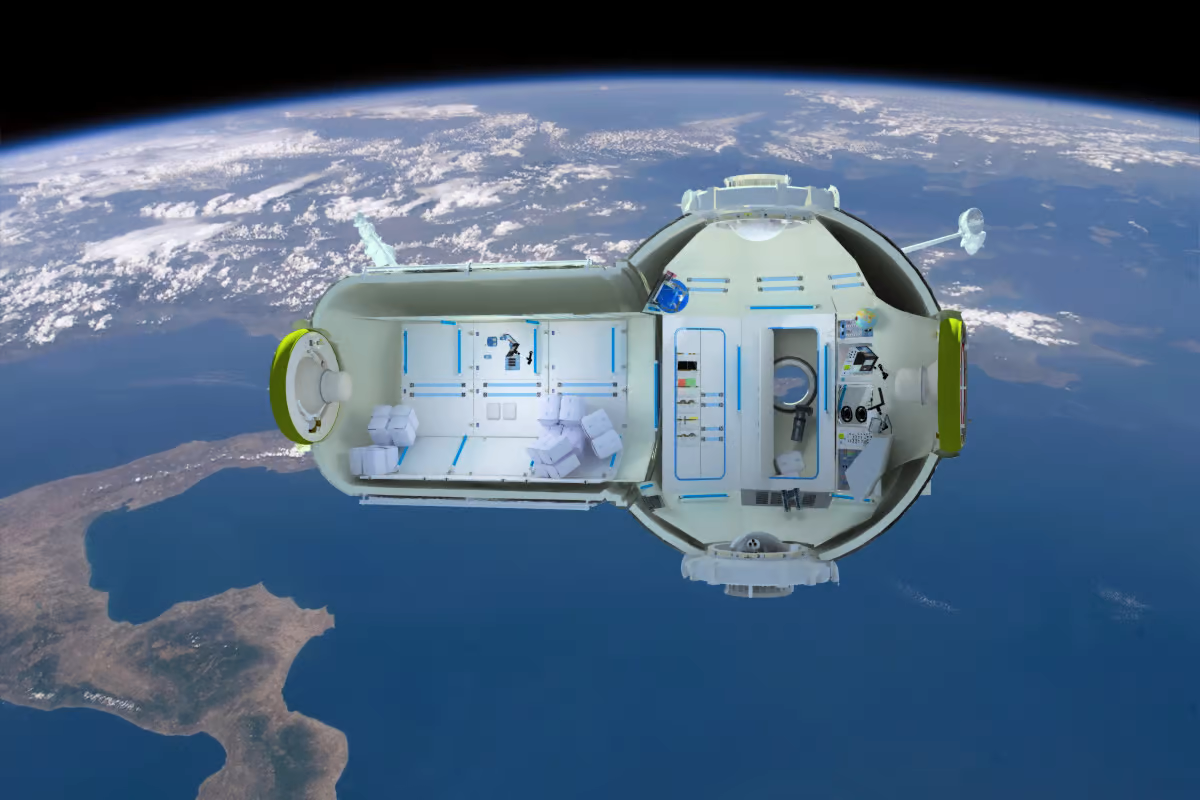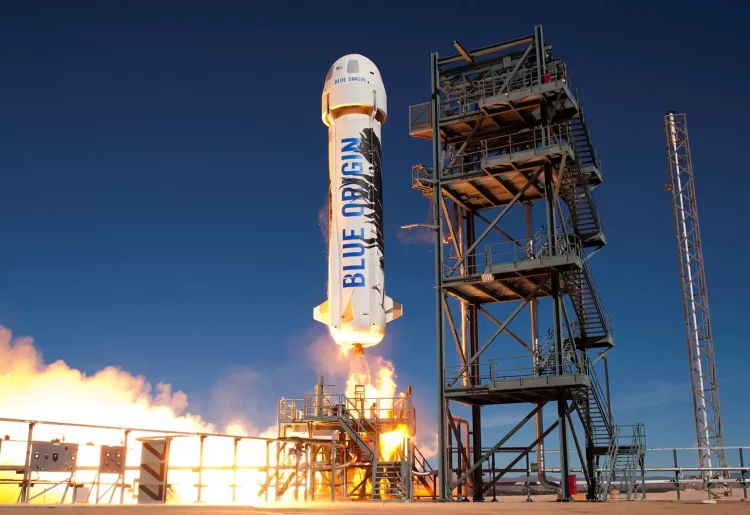Introduction: The Emergence of Private Space Companies and Commercial Space Tourism
In the past few decades, the concept of space travel was largely confined to government agencies such as NASA, Roscosmos, and the European Space Agency. However, with the rise of private space companies, the dream of commercial space tourism is rapidly becoming a reality. Billionaire entrepreneurs like Elon Musk, Jeff Bezos, and Richard Branson have all made significant strides in the development of private space travel, leading to a new era of space tourism. As commercial space companies like SpaceX, Blue Origin, and Virgin Galactic push the boundaries of space exploration, the world is on the brink of a tourism revolution that will not only alter the travel industry but potentially redefine our understanding of leisure, adventure, and even human existence.
Commercial space tourism promises a host of possibilities, from suborbital flights that offer breathtaking views of Earth to longer trips that could eventually take people to the Moon or even Mars. The possibilities are nearly limitless, and with continued investment and technological development, the once unimaginable idea of everyday people traveling to space is increasingly becoming a reality. But what does this mean for the future of tourism, and how will commercial space travel change the way we explore our world and beyond? This article will explore the current developments in commercial space tourism, the potential benefits it brings to the travel and tourism industries, the challenges it faces, and the future trajectory of this exciting new frontier.
Current Developments: SpaceX, Blue Origin, Virgin Galactic, and Their Progress in Space Tourism
- SpaceX: Pioneering Space Travel for Everyone
SpaceX, founded by Elon Musk in 2002, has long been a leader in the realm of private space exploration. Although initially focused on launching rockets and sending cargo into space, the company has quickly pivoted toward more ambitious goals, such as sending humans to the Moon, Mars, and even beyond. Musk’s vision of commercial space travel for ordinary people has taken a giant leap forward with the development of the Crew Dragon capsule, which is designed to carry passengers into orbit.
In 2021, SpaceX made history by launching the first all-civilian crew into space during the Inspiration4 mission. This marked a significant milestone for commercial space tourism, demonstrating that space travel is no longer restricted to astronauts and government-sponsored missions. The mission, which lasted three days in orbit, provided passengers with an experience that was previously the stuff of science fiction. Moving forward, SpaceX is planning more ambitious missions, including the Dear Moon project, which aims to send a group of civilians on a week-long trip around the Moon, and ultimately, its goal of enabling human colonization of Mars.
SpaceX’s technological innovations, including the reusable Falcon 9 rocket, have made space travel significantly more affordable and accessible. While these missions are still expensive, the future promises more accessible space tourism as technological advancements drive costs down over time.
- Blue Origin: Aiming for Space Accessibility
Blue Origin, founded by Amazon’s Jeff Bezos in 2000, is another key player in the space tourism industry. Blue Origin’s New Shepard rocket, designed for suborbital space tourism, has been in development for several years, and in 2021, the company successfully launched its first crewed mission into space, with Bezos himself aboard. The New Shepard rocket is designed to carry passengers on a suborbital journey that briefly crosses the Kármán line, the recognized boundary of space, before returning to Earth.
The trip lasts only about 11 minutes but offers passengers a weightless experience and a chance to see Earth from space. Unlike SpaceX’s Crew Dragon, which reaches orbit, New Shepard’s journey is a suborbital flight that doesn’t involve orbiting the Earth. Despite the brief nature of the journey, it represents a significant milestone for Blue Origin and for the broader space tourism industry. The company’s ambitions include not only further commercial space tourism but also establishing a human presence in space for research and development, ultimately contributing to the growth of a thriving space economy.
Blue Origin’s focus on safety, reusability, and accessibility has made its space tourism service an appealing choice for those seeking a brief but meaningful experience in space. Although the costs are still high, New Shepard represents an entry point for individuals and organizations seeking to experience space travel for the first time.
- Virgin Galactic: Commercializing Space Tourism
Virgin Galactic, founded by British entrepreneur Richard Branson in 2004, has long been a major player in the race for commercial space tourism. Unlike SpaceX and Blue Origin, which focus on orbital and suborbital space travel, Virgin Galactic has focused its efforts on suborbital flights using its SpaceShipTwo spaceplane. The company’s VSS Unity spacecraft is designed to take passengers on a suborbital flight that offers a brief but thrilling experience of weightlessness.
In 2021, Richard Branson made history when he became the first billionaire to fly aboard his own spacecraft, taking part in a suborbital flight to the edge of space. Virgin Galactic’s space tourism offering allows passengers to experience weightlessness and a stunning view of Earth, all while remaining within the comfort of the spacecraft’s cabin.
Virgin Galactic aims to make suborbital space tourism accessible to a wider audience, with a ticket price starting at $250,000. The company’s progress, while slower than that of SpaceX and Blue Origin, is still groundbreaking, and Virgin Galactic’s focus on making space travel available to regular people continues to inspire and shape the industry.
Benefits: New Frontiers in Tourism, Technological Advancements, and Economic Opportunities
- New Frontiers in Tourism
The advent of commercial space tourism opens up an entirely new frontier in travel. For centuries, humans have dreamed of exploring the stars, and now, with advancements in space technology, that dream is becoming a reality. The primary benefit of space tourism is that it allows ordinary people to experience the wonders of space travel, including weightlessness, panoramic views of Earth, and the opportunity to observe our planet from a completely new perspective.
In addition to offering a new form of adventure tourism, commercial space travel also has the potential to unlock new frontiers of research and discovery. Future tourists, scientists, and researchers may play key roles in exploring space, conducting experiments, and developing new technologies that could benefit humanity as a whole. With space tourism, the line between recreational travel and scientific exploration is beginning to blur.
- Technological Advancements
The development of commercial space tourism has spurred a wave of technological advancements, many of which have applications beyond tourism. The development of reusable rockets, new spacecraft designs, advanced propulsion systems, and artificial intelligence in space travel has made space travel more efficient, reliable, and safer.
As private companies continue to innovate, they are also driving technological progress in other sectors. For instance, advancements in materials science, propulsion technology, and computer systems for managing complex space missions can lead to breakthroughs in industries such as telecommunications, environmental monitoring, and even healthcare. The economic benefits of these technological advancements could have far-reaching effects on many industries outside of space tourism.
- Economic Opportunities
The commercial space tourism industry is poised to create new economic opportunities both on Earth and in space. As more companies enter the space tourism market, there will be increased demand for high-tech jobs in fields like engineering, robotics, and spacecraft design. Additionally, tourism infrastructure around spaceports and related facilities will create local economic benefits, such as jobs in hospitality, transportation, and retail.
The burgeoning space tourism industry could also catalyze the growth of other industries that support space exploration, including the development of space habitats, mining, and commercial space stations. As space tourism grows, new business opportunities will emerge, making space travel a significant contributor to the global economy.

Challenges: High Cost, Safety Concerns, Environmental Impact, and Regulatory Frameworks
- High Cost
Perhaps the biggest obstacle to the widespread adoption of commercial space tourism is the high cost. Current ticket prices for suborbital flights range from $250,000 for Virgin Galactic to millions of dollars for orbital flights with SpaceX. These prices are far out of reach for the average person, limiting space tourism to the wealthy elite.
While the costs of space travel are expected to decrease over time as technology improves and economies of scale are achieved, the current cost barrier remains a significant hurdle. For space tourism to become truly mainstream, private companies will need to innovate ways to lower costs while maintaining safety and reliability.
- Safety Concerns
Space travel, even suborbital, carries significant risks. Despite the advancements in technology and the rigorous safety measures employed by space companies, the potential for accidents remains a concern. The tragic accidents that have occurred during space missions, such as the loss of the Space Shuttle Challenger and Columbia, serve as stark reminders of the dangers involved in space travel.
Ensuring the safety of space tourists will require ongoing research, testing, and improvement of spacecraft, as well as the development of comprehensive safety protocols. Space tourism companies must continue to work closely with regulatory bodies to ensure that their missions adhere to the highest safety standards.
- Environmental Impact
Another challenge is the environmental impact of commercial space travel. Space launches are resource-intensive, and rockets emit greenhouse gases and other pollutants into the atmosphere. Additionally, the increase in the number of space launches could contribute to the growing problem of space debris, which threatens both operational satellites and future space missions.
The industry must address these concerns by developing more sustainable technologies, such as greener rocket fuels and better waste management systems. As space tourism expands, companies will need to ensure that their activities do not have a disproportionate impact on the Earth’s environment.
- Regulatory Frameworks
As space tourism continues to grow, the need for a clear and effective regulatory framework becomes increasingly important. Governments will need to establish international standards for space tourism, including rules regarding passenger safety, environmental protection, and space debris management. Additionally, issues such as liability in the event of accidents and property rights in space will need to be addressed by international treaties and agreements.
Conclusion: Commercial Space Tourism Will Likely Redefine Travel in the Future, but It Remains a High-Cost, Niche Market for the Time Being
Commercial space tourism is an exciting and transformative industry with the potential
to reshape the future of travel. As companies like SpaceX, Blue Origin, and Virgin Galactic continue to push the boundaries of what is possible, more people will have the opportunity to experience the wonders of space. The economic, technological, and social benefits of space tourism are immense, and the industry is poised to bring significant changes to the global travel landscape.
However, for space tourism to become a mainstream industry, several challenges remain, including the high cost of tickets, safety concerns, environmental impact, and regulatory frameworks. These obstacles will need to be addressed before space tourism can truly become accessible to the masses. In the coming years, we can expect to see continued advancements in technology, decreasing costs, and increasing accessibility, bringing us closer to a future where space tourism becomes a common experience for many.











































Discussion about this post